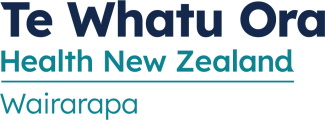Treating all patients with the dignity, care and respect they deserve is key to our work at Health New Zealand | Te Whatu Ora Wairarapa.
Patient rights have been developed into a code by the Health and Disability Commission. The Code of Health and Disability Services Consumers specifies these rights when receiving healthcare services:
• Right to be treated with respect
• Right to freedom from discrimination, coercion, harassment and exploitation
• Right to dignity and independence
• Right to services of an appropriate standard
• Right to effective communication
• Right to be fully informed
• Right to make an informed choice and give informed consent
• Right to support
• Rights in respect of teaching or research
• Right to complain
For more information about the Code of Rights visit the Health & Disability Commissioner (HDC) website. You can also get free independent support from Health and Disability Advocacy.
Your Health Information
We collect information about you and your health to provide the best possible care and to record important statistics. Health New Zealand | Te Whatu Ora- Wairarapa takes great care to ensure the privacy of your health information is respected.
The Health New Zealand | Te Whatu Ora- Wairarapa Privacy Statement sets out what information we collect about you, why we collect it and how that information will be used.
Accessing your health information
If you are an existing or previous patient you have the right to ask for, and be given, access to your personal health information.
In most cases we should be able to provide you with the information within 20 working days. If your request is urgent please tell us and the reason why and we will do our best to meet your timeframe.
Transparency Statement
Our transparency statement explains how we collect, manage, use and share information about identifiable individuals.
It applies to both Wairarapa Hospital and our representatives including our employees, contractors and volunteers.
Please click here to see our transparency statement.
Correcting information
If you think the information we hold is wrong, you can ask for it to be corrected.
Apart from simple factual information, (including name, date of birth and ethnicity), you may be asked to provide a statement about the correction you would like. This statement can be attached to your file.
If you wish to access another person's medical records, we need their consent before we can release the information to you.
Community guidelines for social media channels
We engage with the community and provide important safety and public health information through social media accounts. We encourage contributions to our pages but reserve the right to remove posts that violate our community guidelines. Please keep all comments and posts relevant and respectful.
Social media is not a diagnostic platform – if you have concerns about your health, please get in touch with your GP or contact Healthline for free at 0800 611 116. In an emergency, always call 111.
If we receive information that suggests anyone may be at risk of harm, we may share it with Police or Netsafe to keep them safe. However, our channels are not an emergency service and are not monitored at all hours. If you or anyone else is at risk of hurting themselves or others, please call 111 if it is an emergency. Alternatively, search for mental health services and information.
Te Whatu Ora reserves the right to:
- determine what constitutes inappropriate content
- hide or entirely remove inappropriate content
- ban users from its social media communities.
We may delete posts which contain:
- racist, sexist, homophobic or other forms of hate-speech
- potentially defamatory statements
- confidential information (including contact details and personal or health information)
- misinformation
- spam or advertising
- offensive language, abuse or threats
- off-topic or irrelevant information to the thread of conversation
- nudity, pornography or child abuse
- excessive violence
- content that is illegal, gives instructions for illegal activity or advocates illegal activities.

